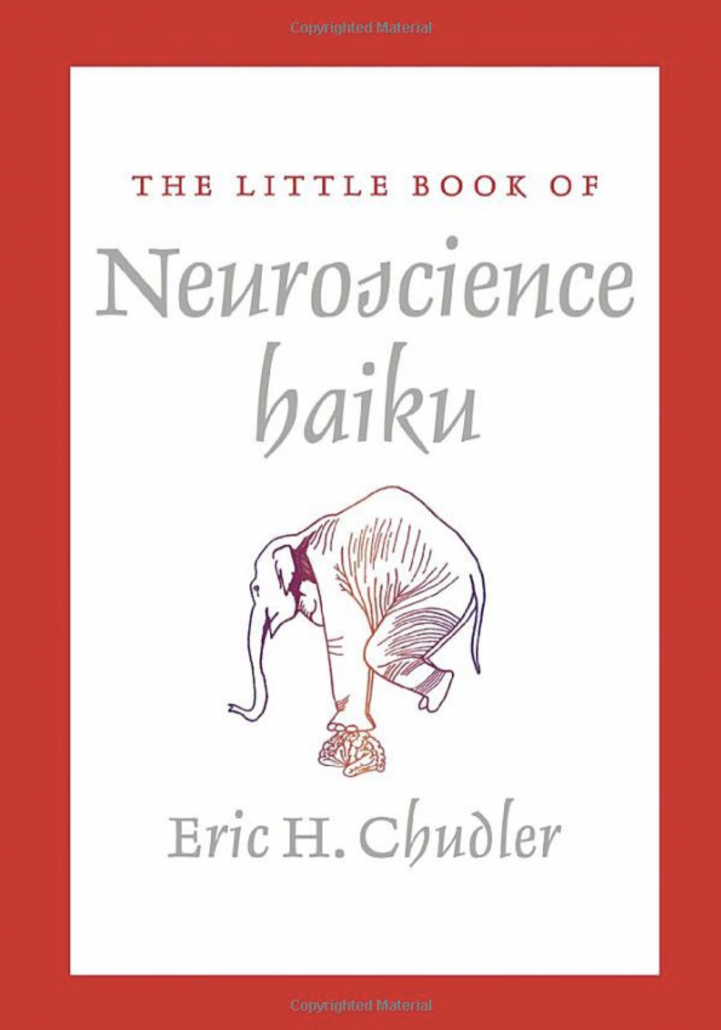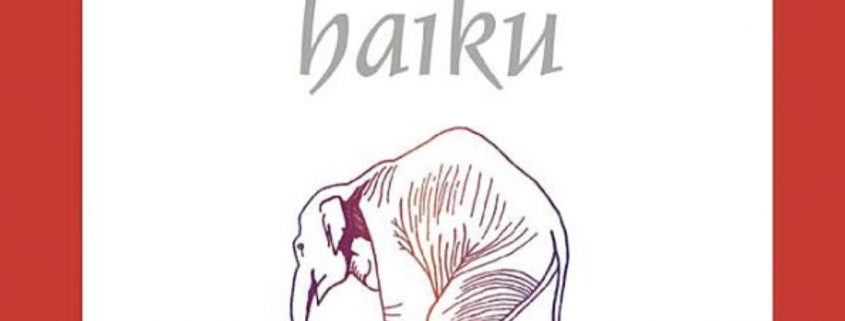The Little Book of Neuroscience Haiku – an educational book about the brain
Dr. Eric Chudler, a neuroscientist from the University of Washington, has been engaged in outreach activities for many years, targeting adults, students, and children. His Little Book of Neuroscience Haiku represents a unique way of conveying the function and the wonder of the human brain. Crastina got in touch for an interview.
Maintaining balance
Cerebellum, little brain
Aids motor learning
Hi Eric! Please tell us a little about yourself as a scientist and poetry-lover. What kind of poetry do you like the most?
I am a research neuroscientist at the University of Washington in Seattle, WA. My primary research interests focus on how the brain processes information from multiple sensory systems and how organisms make use of these cues to make appropriate behavioral responses. I am also interested in the neuroactive properties of medicinal plants and herbs as potential treatments for neurodegenerative disorders.
The poems I like best are simple ones, especially those that include a bit of humor or an unexpected twist.

Was there any special person or book which initiated your interest in poetry?
Neither of my parents was a scientist; instead, they were both teachers. They encouraged me to read as much as I could and to follow any topic I found most interesting.
What do you think is the hardest part of writing poetry?
In my opinion, writing the first words of a poem and then knowing when to stop writing and revising are the most difficult parts of writing a poem.
Please tell us about the book you published – The Little Book of Neuroscience Haiku – and how it was conceived!
For several years, I had been writing short poems as a way to convey complex neuroscientific concepts to the general public. I was approached by W.W. Norton & Company, Inc., who asked if I was interested in publishing with them. I sent them several ideas including a cookbook and a book of poems. Although they were not interested in my cookbook, they did find the haiku book intriguing. After signing a contract with W.W. Norton & Company, I worked several months to write new poems and their explanations, and to arrange the poems in a logical order. The publishing company hired an illustrator to create new artwork for the book.
Has poetry helped you in your role as a scientist?
Writing poetry has helped me as a communicator of my science. Scientists must write for experts in their fields when they publish peer-reviewed publications or grant applications. Scientists should also write for non-experts who may have difficulty accessing peer-review journals or who do not understand the language in a technical manuscript. Writing for experts and non-experts involves different skills, but I think writing poetry helps with both because poetry requires that writers focus on the essence of an idea.
Please tell us about the poetry contest you have been organizing for a number of years!
Since 2001, I have been organizing a poetry contest for young students. The contest has been part of my “Neuroscience for Kids” web site and encourages students from around the world to write different types of poems about the nervous system. All poems must be 10 lines or less and students of different ages write different types of poems. Students in kindergarten to second grade write poems in any style; students in grades 3-6 write rhyming poems; students in grades 6-8 write haiku and high school students write limericks. I receive hundreds of poems for each contest. After the deadline to receive poems, I read all of the entries and select a number of finalists from each poetry category. Faculty, staff and graduate students at the University of Washington read the finalists and vote for their favorites. The poems that receive the most votes are the winners. I then send winners books or other prizes in recognition of their work.
 Please give three pieces of advice to the early career scientist who wants to approach poetry – both as a reader and an aspiring poet!
Please give three pieces of advice to the early career scientist who wants to approach poetry – both as a reader and an aspiring poet!
A. Write, revise, write, revise, write revise: repeat until you are satisfied with the result.
B. Get a second, third or fourth opinion: have others read your work and make suggestions.
C. Make time to write: we all have busy days but set aside a special time to focus on your writing.
Eric H. Chudler, Ph.D., currently works in the Department of Bioengineering at the University of Washington in Seattle. He is also the executive director and education director in the Center for Neurotechnology. Apart from the haiku book, he has published titles like Brain Lab for Kids and Brain Bytes (together with Lise A. Johnson).
- Claire Price of Crastina receives outreach award from Royal Society of Biology - October 25, 2020
- Agile Science student project at Brussels Engineering School ECAM: “We can’t wait to try it again!” - August 28, 2020
- Create an infographic in the Lifeology SciArt Infographic Challenge - June 16, 2020
- Adam Ruben – The scientist that teaches undergraduate students comedy - March 27, 2020
- Sam Gregson, Bad Boy of Science: “Comedy helps to bridge the gap” - March 10, 2020
- The Coolest Science Merchandise of 2019 - December 16, 2019
- Science Media Centre (UK) offers guide on dealing with online harassment in academia - November 26, 2019
- Agile project management taught to students and researchers at Karolinska Institutet - September 20, 2019
- Stefan Jansson: Improve your credibility! (Crastina Column, September 2019) - September 6, 2019
- The People’s Poet: Silke Kramprich, tech communicator - August 31, 2019





Leave a Reply
Want to join the discussion?Feel free to contribute!